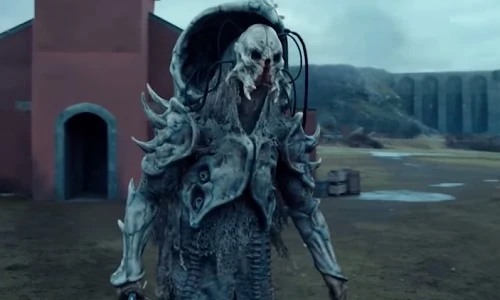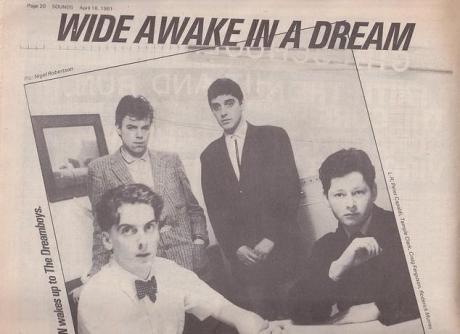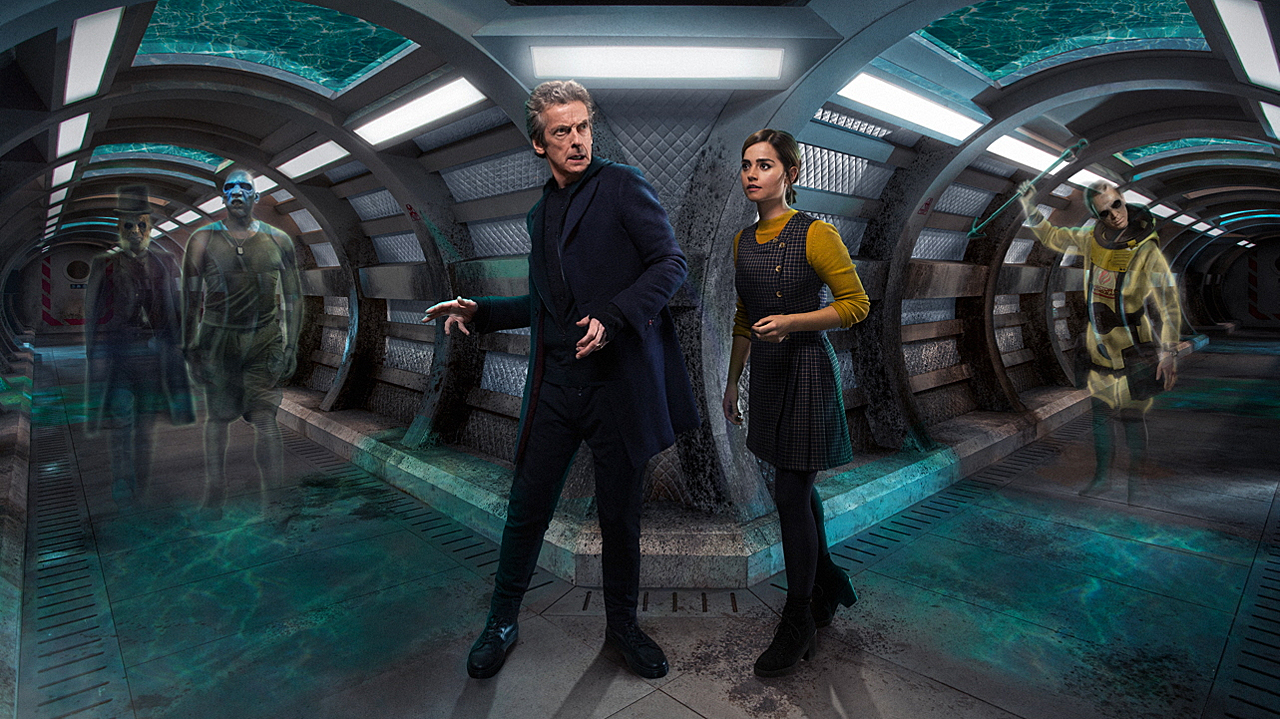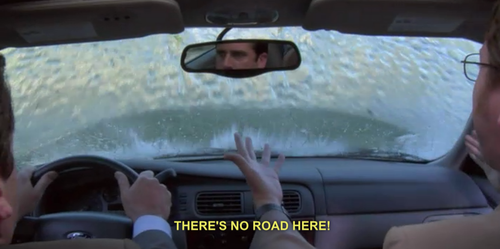 |
| If on your journey should you encounter God, God will be cut. |
 |
| THAT NAME IS SO METAL, MAN! |
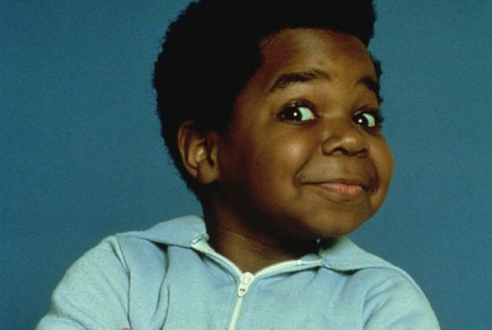 |
| Trust me, Ashildr, it sucks! |
There have been reports out in the press questioning about whether Maisie Williams's character is going to be coming back after "The Woman Who Lived." I feel like the idea of a girl who can never die is such an interesting idea that I can't see this just being an idea for a two-parter. I feel like this has to come around to the larger season arc.
But how? The dialogue hinted at there being some connection to The Hybrid, but a lot of dialogue in Doctor Who that hints at being connected to the larger plot arc turns out to be a complete red herring. Remember the ending to "Vampires of Venice" where the Doctor pointed out that there was some strange silence in Venice? Remember how that had absolutely nothing to do with what The Silence were (even though we flashed back to this moment anyway when The Silence were first identified by name)? It could be a pretty simple mislead. But The Hybrid is coming up a lot this season, which leaves me wondering, are the Daleks created in "The Witch's Familiar" The Hybrid, or is Ashildr? Or were both mentions misleads and The Hybrid is something completely different? If you think about it, a lot of things in the Doctor Who universe could be called hybrids. Both Daleks and Cybermen are, by definition, hybrid creatures. Donna Noble is a hybrid. If you take the most hated line from the 1996 Doctor Who movie to be true, the Doctor himself is a hybrid. So it could be anything.
It could even be...
 |
| I'm half attractive, half horrifying |
Also, Davros was a little vague about this prophesy of The Hybrid. What's supposed to be so terrible about it? Why is the Doctor running from it? What makes it so terrifying?
I made this blog primarily to make predictions about the show based on clues, and I totally forgot to pick up on the huge, huge, huge clue that was dropped last week, when O'Donnell, who like Osgood seems to be a real life Doctor fan (and who, liked Osgood, is dead because of it), mentioned a whole bunch of stuff that happened to the Doctor between 1980 and 2119 and she brought up one phrase that the Doctor did not recognize yet: "The Minister of War." Sure, it could be a throw away line that has no bearing on anything, but I really feel like Whithouse was just shouting "Clue!" at us pretty loudly at that moment. It's possible that it's not a clue for this season's finale, as we all know that, in the Moffat era, big twists can be set up many seasons in advance ("Silence Will Fall," "The Woman in the Shop"), but I have a feeling that Missy is the Minister of War, possibly the title she's assumed by staying behind on Skaro to join forces with the Daleks.
Moffat hasn't left us this vague of a mystery in a while, but it's an interesting one to start speculating on. I'm really curious to see where this is going. Missy has a plan, I'm sure of it, the Hybrid is a dubious evil lurking in the background, and Ashieldr is now a poor, cursed girl who can never die or even age. So what's the connection? How does this all lead us to a season finale two-parter called "Heaven Sent" and "Hell Bent," the former of which is supposed to have no other actors but Peter Capaldi in it for the whole thing?! I'm so curious about what Moffat is building here. But I'm ready for the ride, because so far, it's been fun. While this wasn't my favorite episode, I get the feeling it's building so, so, so much more, and I'm really intrigued to see where we go from here.
Next week, I look forward to Torchwood writer Catherine Tregenna becoming the first woman to write an episode of Doctor Who since "The Sontaran Stratagem"/"The Poison Sky." Really, that writing staff has been far too much of a sausage party for several seasons now, and this season we have not one, but two different female writers for the first time in far too long. Catherine Tregenna is the only writer to have been nominated for a Hugo award for working on Torchwood, so hopefully we're going to get something really special next week. I really look forward to it!
And now, this!:
I made this blog primarily to make predictions about the show based on clues, and I totally forgot to pick up on the huge, huge, huge clue that was dropped last week, when O'Donnell, who like Osgood seems to be a real life Doctor fan (and who, liked Osgood, is dead because of it), mentioned a whole bunch of stuff that happened to the Doctor between 1980 and 2119 and she brought up one phrase that the Doctor did not recognize yet: "The Minister of War." Sure, it could be a throw away line that has no bearing on anything, but I really feel like Whithouse was just shouting "Clue!" at us pretty loudly at that moment. It's possible that it's not a clue for this season's finale, as we all know that, in the Moffat era, big twists can be set up many seasons in advance ("Silence Will Fall," "The Woman in the Shop"), but I have a feeling that Missy is the Minister of War, possibly the title she's assumed by staying behind on Skaro to join forces with the Daleks.
Moffat hasn't left us this vague of a mystery in a while, but it's an interesting one to start speculating on. I'm really curious to see where this is going. Missy has a plan, I'm sure of it, the Hybrid is a dubious evil lurking in the background, and Ashieldr is now a poor, cursed girl who can never die or even age. So what's the connection? How does this all lead us to a season finale two-parter called "Heaven Sent" and "Hell Bent," the former of which is supposed to have no other actors but Peter Capaldi in it for the whole thing?! I'm so curious about what Moffat is building here. But I'm ready for the ride, because so far, it's been fun. While this wasn't my favorite episode, I get the feeling it's building so, so, so much more, and I'm really intrigued to see where we go from here.
Next week, I look forward to Torchwood writer Catherine Tregenna becoming the first woman to write an episode of Doctor Who since "The Sontaran Stratagem"/"The Poison Sky." Really, that writing staff has been far too much of a sausage party for several seasons now, and this season we have not one, but two different female writers for the first time in far too long. Catherine Tregenna is the only writer to have been nominated for a Hugo award for working on Torchwood, so hopefully we're going to get something really special next week. I really look forward to it!
And now, this!:



